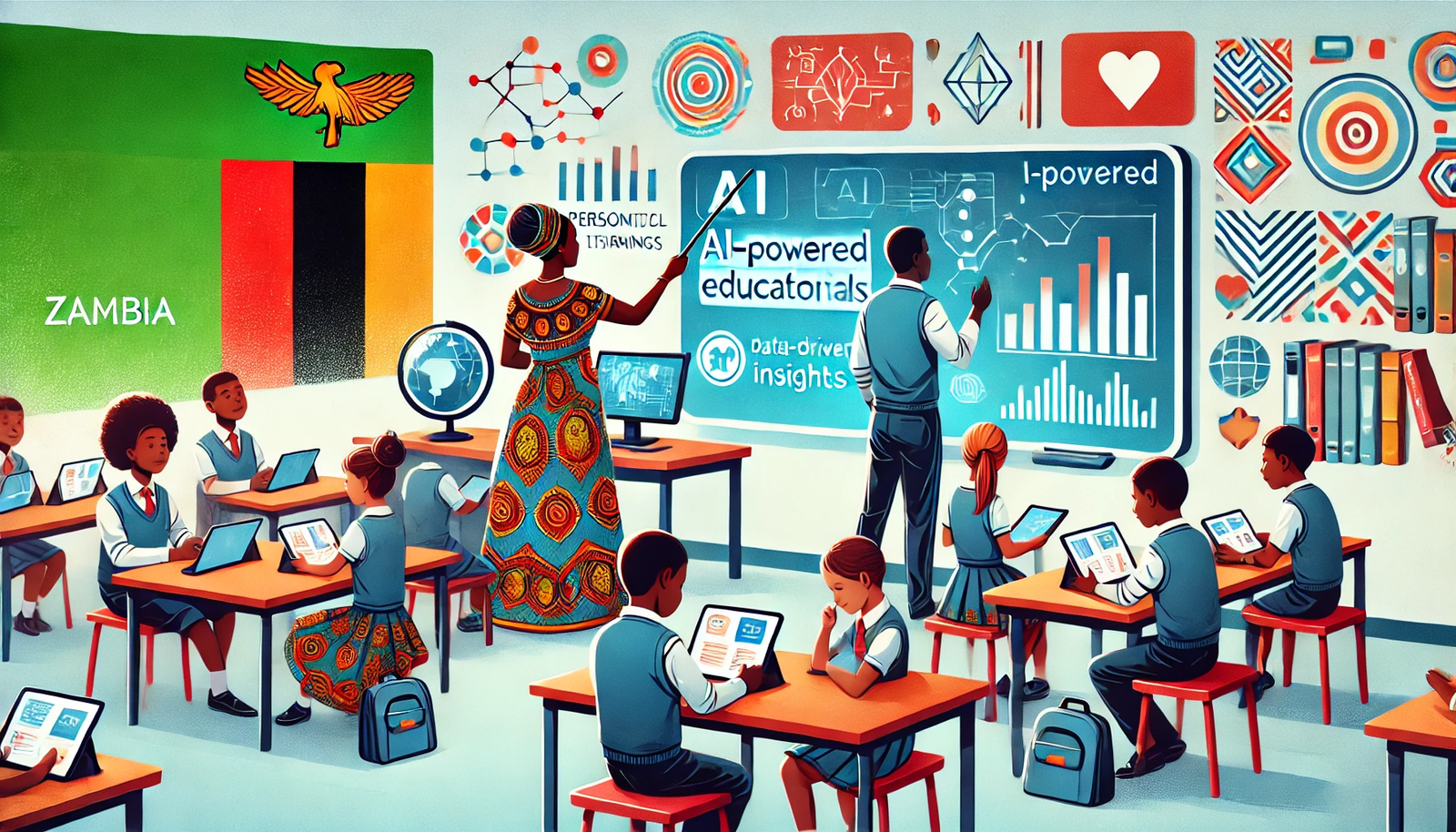In an era where technology is rapidly transforming education, artificial intelligence (AI) holds great promise for enhancing the quality of teaching and learning in Zambia. By integrating AI into classrooms, teachers can significantly improve their teaching methods and the quality of the content they deliver. However, with the rise of AI, there is a risk of students from affluent backgrounds having access to advanced AI resources, potentially surpassing their teachers in knowledge. This blog post explores how AI can empower Zambian teachers and offers strategies to maintain their authority and respect in the classroom.
How AI Can Improve Teaching Quality in Zambia
- Personalized Learning Experiences:
AI can analyze individual student data to tailor educational experiences, ensuring that each student receives the support they need. This personalized approach helps teachers address the unique strengths and weaknesses of each student, promoting better learning outcomes. - Interactive and Engaging Tools:
AI-powered educational tools, such as interactive simulations, virtual labs, and educational games, can make learning more engaging and accessible. These tools simplify complex concepts, making them easier for students to understand and retain. For instance, subjects like science and mathematics can come to life through virtual experiments and interactive problem-solving exercises. - Automated Administrative Tasks:
AI can handle administrative tasks such as grading and attendance tracking, freeing up more time for teachers to focus on instruction and student engagement. This efficiency allows teachers to dedicate more time to lesson planning and individualized student support. - Professional Development and Training:
AI can provide teachers with access to online courses, training modules, and resources that help them stay updated with the latest educational trends and teaching methodologies. Continuous professional development ensures that teachers are well-equipped to handle evolving educational challenges. - Data-Driven Insights:
AI can offer valuable insights into student performance and behavior, enabling teachers to make informed decisions. By understanding which teaching strategies work best, teachers can continuously refine their methods to enhance student learning outcomes.
Avoiding Ridicule from Advanced Students
While AI can significantly enhance teaching quality, there is a risk that students with access to superior AI resources might surpass their teachers in certain areas. Here are some strategies to address this challenge:
- Continuous Learning and Adaptation:
Teachers should embrace a mindset of continuous learning and stay updated with advancements in AI and education technology. By regularly upgrading their skills and knowledge, teachers can stay ahead of the curve and maintain their authority in the classroom. - Fostering a Collaborative Learning Environment:
Teachers can create a classroom culture that values collaboration over competition. Encouraging students to share their knowledge and insights can create a supportive learning environment where everyone benefits. Teachers can also learn from their students, fostering mutual respect. - Leveraging AI as a Teaching Aid:
Teachers can use AI tools to their advantage, incorporating them into their lesson plans and teaching strategies. By demonstrating how to effectively use AI for learning, teachers can position themselves as guides in navigating the AI landscape, rather than being outpaced by their students. - Building Strong Teacher-Student Relationships:
Developing strong relationships with students based on trust and respect is crucial. When students feel valued and understood by their teachers, they are less likely to undermine their authority. Teachers can achieve this by showing genuine interest in their students’ well-being and academic progress. - Promoting Critical Thinking and Problem-Solving Skills:
AI can provide information, but critical thinking and problem-solving skills are irreplaceable. Teachers should focus on developing these skills in their students, emphasizing the importance of analytical thinking and creativity. By nurturing these abilities, teachers can remain indispensable in guiding students through complex challenges.
Conclusion
AI offers immense potential to transform education in Zambia by enhancing the quality of teaching and learning. By leveraging AI tools and adopting a proactive approach to continuous learning, teachers can significantly improve their instructional methods and stay ahead in the rapidly evolving educational landscape. Moreover, by fostering collaborative learning environments, building strong relationships with students, and promoting critical thinking, teachers can maintain their authority and respect, ensuring a harmonious and productive classroom environment. Embracing AI as a partner in education can empower teachers and students alike, leading to a brighter future for education in Zambia.


